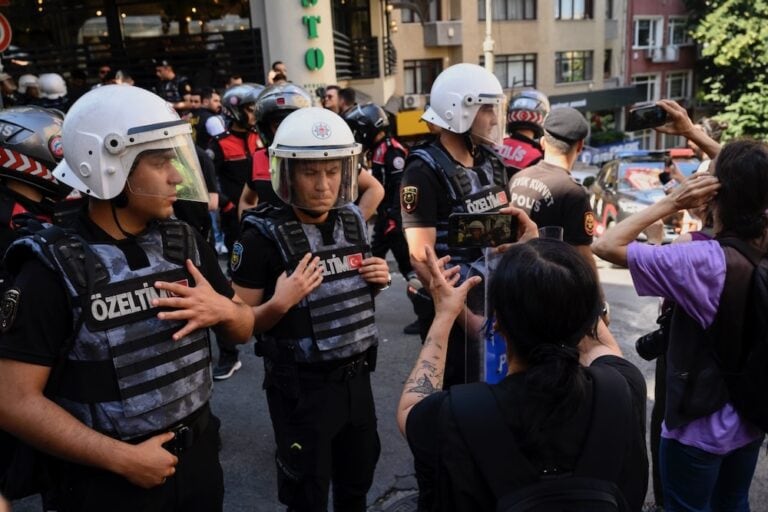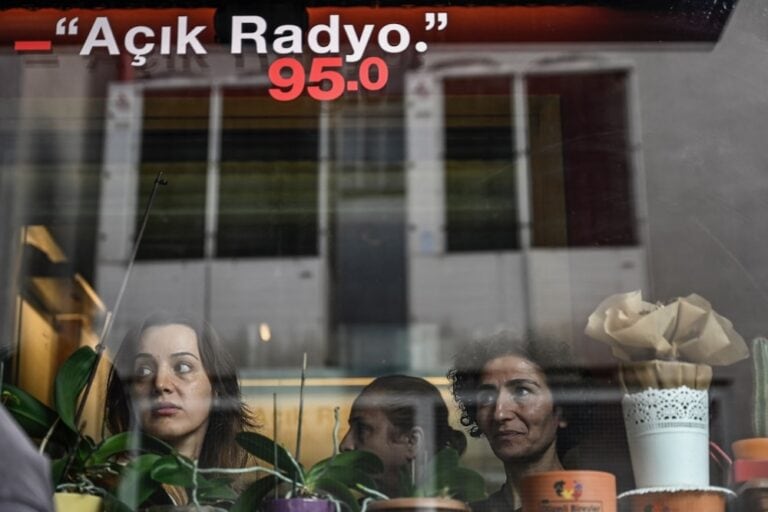PEN International is concerned that government critics such as Mustafa Balbay – a prolific journalist and author – may have been penalised as a warning to government opponents.
PEN International is concerned that writer Mustafa Balbay was sentenced to an extremely lengthy prison term on 5 August 2013, after conviction in the “Ergenekon trial” that PEN International considers to have been deeply flawed and to have fallen far short of international fair trial standards. The organization is also concerned that government critics such as Balbay who were among the defendants may have been penalised as a warning to government opponents. After serving four years in pre-trial detention, Balbay has been given a 34 year and eight month prison sentence.
Ergenekon is an alleged clandestine network of influential secularists and nationalists whose purported aim was to lay the foundations for a military coup. Investigations began in 2007 and over the next two years hundreds were detained during a series of arrests, among them military officers, both retired and in service, lawyers, academics and journalists.
The first wave of arrests targeted mainly former military, security and intelligence officers, and was welcomed by some as a long-overdue recognition of a “deep state” operating within the heart of the government and army. However, later waves netted a number of writers and academics, mainly staunch secularists who are outspoken critics of the ruling Justice and Development Party (AKP) and who work for secularist publications.
The defendants were convicted under anti-terrorism laws that have long been criticised for falling short of international standards. PEN International has on its records over 60 writers and journalists who are imprisoned, the majority of whom are held under these laws. One example is Article 314/2 of the Penal Code which criminalises membership of an armed organisation which has been used against writers despite there being no evidence that they used or called for violence.
Mustafa Balbay is among the most high profile of the Ergenekon defendants. A journalist for over 30 years, at the time of his arrest he was Ankara bureau chief for Cumhuriyet, for which he still writes from prison. He is also a prolific author, having published more than 30 books. In June 2011, while in detention, he was elected as parliamentary deputy for Izmir province for the opposition Republic People’s Party (CHP).
Balbay was first arrested on 1 July 2008 and held for five days before being freed pending trial. He was re-arrested on 5 March 2009 and has been detained ever since, most recently in the Silivri prison complex. He is accused of taking part in secret meetings where leading figures, including generals, are said to have discussed plans for a coup with the editor of Cumhuriyet, Ilhan Selçuk (now deceased). Evidence against Balbay include diaries and notes that he maintains he took as part of his journalistic activities, research documents, and wiretaps of his newspaper’s Ankara office phones.
Several other writers and journalists were convicted alongside Balbay and received similarly heavy sentences among concerns for the fairness of the trials against them. William Nygaard, President of PEN Norway and Tarik Günersel, President of PEN Turkey, were among the observers at the trial. PEN International is concerned that Mustafa Balbay and others have been convicted after a trial that fell far short of international standards. It calls on the Turkish authorities to release immediately and unconditionally anyone sentenced solely for peacefully expressing their views. The organization also calls for the conditional release of Mustafa Balbay pending his appeal against his conviction and sentence.


